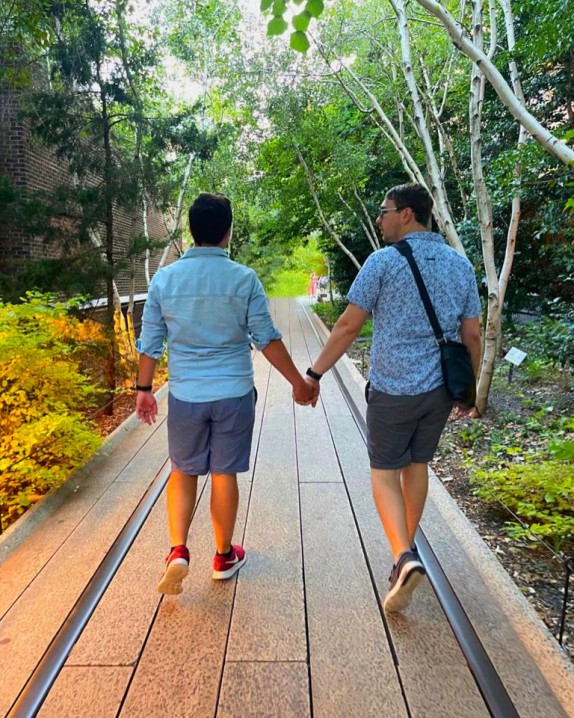Fernando Azpurua / Venezuela
Fernando Azpurua (@ferazpurua in Instagram) is a 31-year-old Venezuelan social communicator and playwright who is one of the more than 5.6 millions of his compatriots who have emigrated in recent years due to the complex humanitarian emergency facing the south american country, according to the Office of the UN for Refugees (Acnur). He currently lives in New Jersey, USA, a change that he feels has completely helped him feel freer to be himself.
His story:
Between 2010 and 2014 I studied communications at the Monteavila University (a private institution in Caracas founded by members of Opus Dei), where I was taught homosexuality in anthropology classes as a mental illness, which is proven to be false (in 1990 the WHO eliminated homosexuality from its list of psychiatric illnesses). There was no type of fact-checking despite being a university, and it was content evaluated even if you did not agree with it.
I understand that it’s a religious institution, but the professors’ comments were irresponsible, and the worst thing was that people supported them, even a teacher offered us a book that said it helped to heal the homosexuality. I remember that she once referred to the sexual act between men as unnatural because they “don’t see each other eye to eye during the act”, which I felt inappropriate and just bullshit. They justified everything with religions writings.
I feel that the LGBT + students around me felt intimidated and did not speak, but for a university institution, I find it super backward and painful that they taught this content like that. The career was communications, the subjects were philosophical anthropology, which was religion in disguise and they were given to you in the first and last year to ensure that you leave indoctrinated, while the journalism classes, which our country needs so much, were given only one time and they were super sloppy. It did not make sense. I don’t know if today they have changed.
I fought against this situation several times. And for speaking openly on the subject, they sent me to see private classes with a priest. The excuse was because I was not doing well in anthropology and could fail. But the real reason I was failing in anthropology was because I didn’t want to accept their views. I had to see classes with a priest in a reformatory at the university level where he repeated the same information about human sexuality.
The final university exam was a one on one with a teacher where all these atrocities had to be repeated and as I told her my true opinion on the subject, she failed me. Thank God my grades were not bad and I was able to graduate, but based on having to endure and repeat in the exams what they wanted me to say. And I feel like a lot of that slowed me down in my understanding of my sexuality and affected my self-confidence a lot. I did not feel in a safe place, but I tried to block it as it passed and assimilate it as normal.
Then I studied my master’s degree here in New Jersey and that’s when I understood that I never went to a university, I went to a religious reformatory that they disguise as a university for young people from the east (as they say to young inhabitants of Caracas belonging to the middle and high social classes).
I have to admit that some of the professors reached out to me to give me words of advice. It felt uncomfortable for them, but I did appreciate it at the time since I was feeling lonely. I tried to end on a good note with them and the institution and even my anthropology professor wrote a letter of recommendation for my master’s program. Not everything was bad while it happened and it took me years to understand how the things that were taught affected and confused me, when they were said by people who otherwise were really nice to me.”




